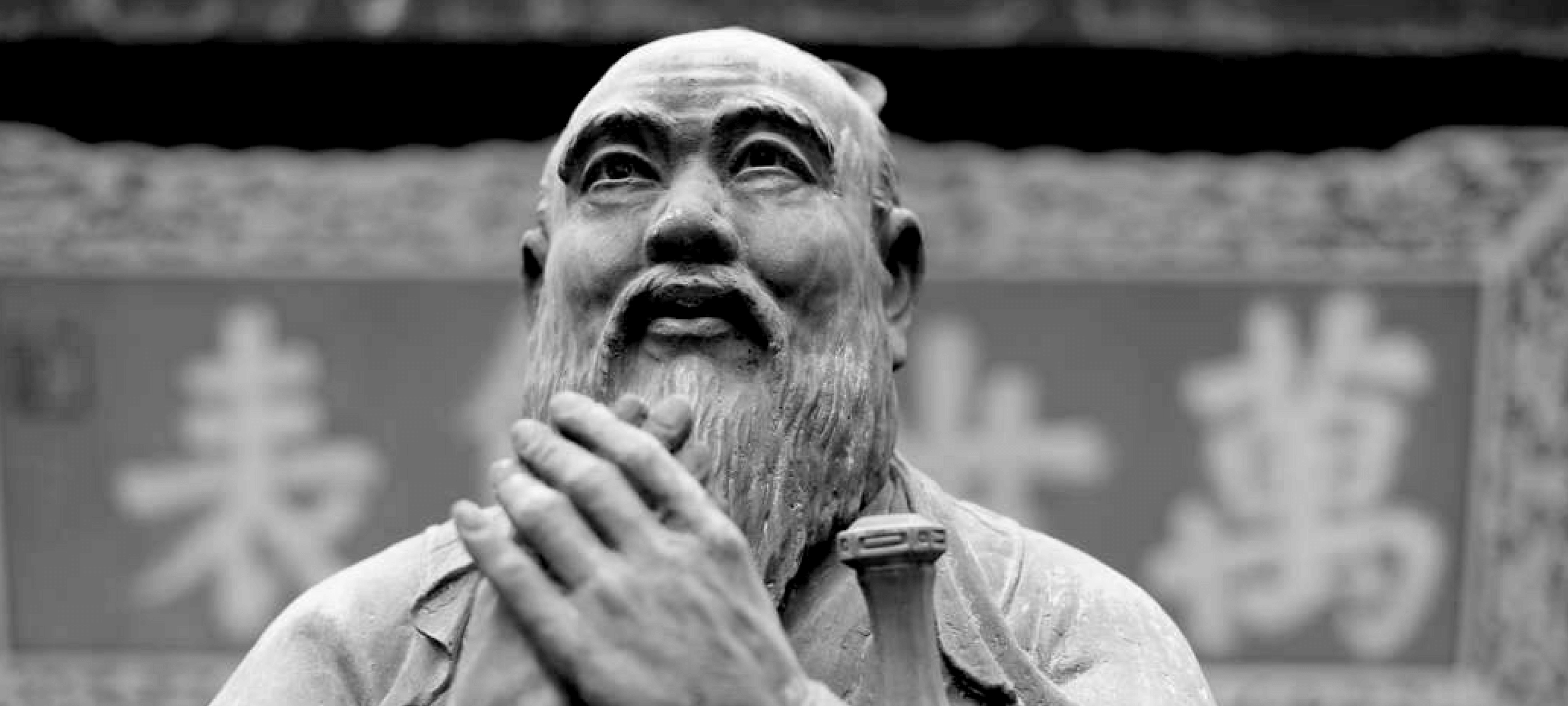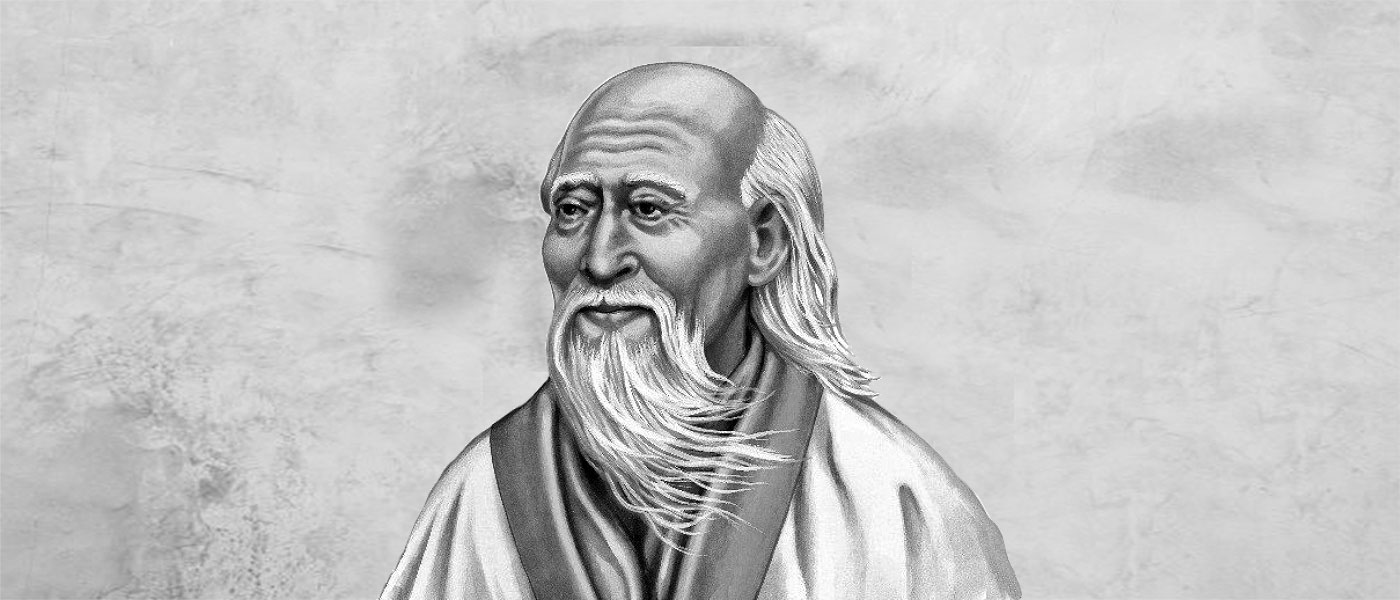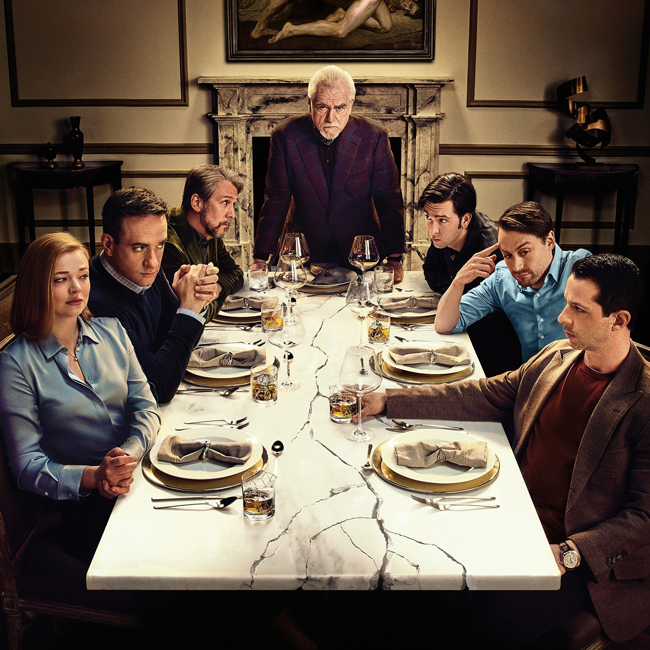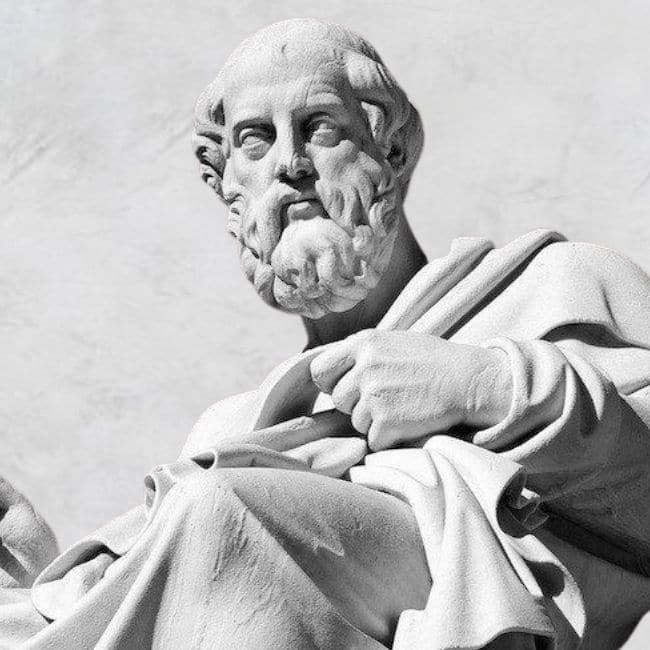If women won the battle of the sexes, who wins the war?

If women won the battle of the sexes, who wins the war?
Opinion + AnalysisRelationships
BY Gordon Young The Ethics Centre 26 JUN 2018
Only two years ago, I said the question of feminism’s success was over. Sure, there was still plenty of mopping up to do – ingrained practices and subconscious beliefs that needed to be rooted out – but the war was won. Feminism was now the socially and institutionally accepted norm in the developed world. Everything else was just details.
As you can imagine, I’m no longer so sure of that stance.
The Trump era demonstrates that for many, the war is far from over. Whether we’re talking about the Men’s Rights Movement, hypermasculine pick-up artists, or the extremist fringe Incel movement, a resurgence of anti-feminist sentiment in recent years raises some serious concerns for the future of the debate.
Sociological analysis of platforms such as YouTube, Reddit, and 4chan have noted that – quite contrary to the overall changes to social norms – anti-feminist sentiments appear to be resurgent in online forums. Feminist campaigners and scholars have approached this issue by attempting to demonstrate the feminist goals of dismantling gender roles and toxic masculinity are beneficial to men too, not just women. In spite of their efforts, anti-feminist sentiments are re-emerging in ‘real world’ political and social discourses.
But I believe that such approaches to this debate miss a key factor that underlines this revival of patriarchal masculinity.
“In the battle of the sexes, there can only be one winner. And it wasn’t men.”
Competing for power
For women, the development of feminism was an experience of expanding freedom, autonomy, and the right to both. Restrictive ideals of ‘feminine’ careers and pursuits were slowly dismantled, economic mobility and independence was gradually wrested from the patriarchy, and both political freedom, and the recognised right to that political freedom, became enshrined in law and the policy of private companies.
While nobody can reasonably deny this hard-earned progress towards equal rights was the ethical imperative, we should recognise that this newly-won power for women came from somewhere. It came from men.
If we understand power as the ability for an individual or group to control their circumstances, and if that power within a given context cannot be shared, it must instead be competed for by the parties involved. And while women have had every justification in seeking their fair share of power in order to control their circumstances, seeing their public role in the world burgeon as a result, this same process has seen men’s shrink.
In the space of one generation they have gone from the undisputed leaders of society and the family unit, to adrift in a sea of uncertainty as the new world order of equal rights asserts itself.
The Incel movement – “involuntarily celibate”
All of this is nicely illustrated by the emergence of the Incel subculture. ‘Incel’ is an abbreviation for ‘involuntarily celibate’. It is a community comprised of young men who feel that sex – or even the opportunity for sex – has been denied to them by women, both individually and collectively. The layers of psychology surrounding this are many and complex, as captured in excellent detail in this piece by philosopher Amia Srinivasan. But while it is both easy and accurate to describe a perceived entitlement to sex as severely problematic, doing so ignores one very important reality: in many regards, men used to have that power.
Even as recently as the 1990s, a masculine trope where men were responsible for providing for and protecting their families was still quite well established. They were told they should be upright, decent, considerate, and strong. And in return for all of this, they would attract female partners who would recognise these qualities, and those female partners would reward them with sex.
Needless to say, this is an incredibly simplistic and largely inaccurate perception of traditional gender roles, ignoring as it does the vast number of people that did not experience this simple equation or who were victimised by it. But the fact remains it was also somewhat true. Where strict gender roles are enforced by society, a man is offered a very simple formula to follow to get female companionship and/or sex. Fulfil the traditional role of a ‘man’ and women would inevitably seek out your company – usually because their traditional role as ‘women’ meant they had few other options.
The rise of feminism has seen increased freedom and opportunity for both genders, but while it saw the role of women grow, it also saw this traditionally dominant role for men shrink. Many men have seen this as an opportunity to grow beyond the old restraints of masculinity, but others have found themselves adrift, lacking even the old traditional guidelines to tell them what their purpose is and how they should conduct themselves.
“Masculinity today is in crisis. Old ways for men to understand themselves, their role and their purpose, have fallen apart.”
Faced with the potentially colossal existential crisis this presents them with, many men are turning to reactionary anti-feminist movements in psychological self-defence, preferring to externalise their crisis into a fightable enemy rather than undertake the daunting task of creating a new and better self – a project which by its very nature must be undertaken alone and is often very painful. The question before us is what we can offer those seeking an identity in this new, dynamic age that can provide that precious sense of self, which doesn’t also depend on unrighteous dominance over others.
This question is neither the fault, nor the responsibility of women. But faced with the reality of a resurgence in patriarchal political sentiment, it is a problem that feminists and their allies are forced to deal with – whether we like it or not.
Ethics in your inbox.
Get the latest inspiration, intelligence, events & more.
By signing up you agree to our privacy policy
You might be interested in…
Big thinker
Relationships, Society + Culture
Five Australian female thinkers who have impacted our world
Opinion + Analysis
Relationships
Come join the Circle of Chairs
Big thinker
Relationships
Big Thinkers: Laozi and Zhuangzi
Opinion + Analysis
Politics + Human Rights, Relationships, Society + Culture
The sticky ethics of protests in a pandemic
BY Gordon Young
Gordon Young is a lecturer on professional ethics at RMIT University and principal at Ethilogical Consulting.
BY The Ethics Centre
The Ethics Centre is a not-for-profit organisation developing innovative programs, services and experiences, designed to bring ethics to the centre of professional and personal life.
Ethics Explainer: Perfection

We take perfection to mean flawlessness. But it seems we can’t agree on what the fundamental human flaw is. Is it our attachment to things like happiness, status, or security – things that are about as solid as a tissue? Our propensity for evil? Or is it our body and its insatiable appetite for satisfaction?
Four different philosophical traditions have answered this in their own ways and tell us how we can achieve perfection.
Platonism
Plato’s idea of perfection is articulated in his Theory of Forms. The Forms represent the abstract, ideal moulds of all things and concepts in existence, rather than actual things themselves. In short, the idea of something is more perfect than the tangible thing itself.
Take ‘red’ for example. Each of us will have a different understanding of what this means – red lipstick, a red brick house, a red cricket ball… But these are all different manifestations of red so which is the perfect one? For Platonists, the perfect, ideal, universal ‘red’ exists outside of space and time and is only discoverable through lots and lots of philosophical reflection.
Plato wrote:
He will do this [perceive the Forms] most perfectly who approaches the object with thought alone, without associating any sight with his thoughts, or dragging in any sense perception with his reasoning, but who, using pure thought alone, tries to track down each reality pure and by itself, freeing himself as far as possible from eyes, ears, and in a word, from the whole body, because the body confuses the soul and does not allow it to acquire truth and wisdom whenever it is associated with it.
In Platonist thought, the body is a distraction from the abstract thought necessary for philosophical speculation. Its fundamental flaw? Its carnal desires that shackle the soul.
Perfection for the individual, to sum up, is the arrival back to the soul’s state of pure contemplation of the Forms. This out of body state of contemplation is far from the idea of the perfect face and physique we often think about today. Indeed, a perfect physical form for Palto is impossible. It is all in the imagination.
Hinduism
In Hinduism’s Advaita school of philosophy, perfection means the full comprehension and acceptance of Oneness.
It’s when you realise your soul (or your atman) is the same as everyone else’s and you are all part of the one, unchanging, metaphysical reality (the Brahman). In this state of realisation, the always changing, material world of maya reveals itself to be an illusion and anything attached to this world, including your actions, are illusions as well. (There are parallels with this and the idea of Plato’s Cave, which is narratively conceived of in The Matrix.)
To attain this status of perfection, an individual must surrender to their caste role and perform that duty to excellence. No matter what they did, they would understand their actions had no effect on the Brahman and to believe so, was a trick of the ego. They focused on renouncing all earthly desires and striving to become completely detached from the world through the specific rituals of their caste role.
Krishna said:
A man obtains perfection by being devoted to his own proper action. Hear then how one who is intent on his own action finds perfection. By worshipping him [Brahman], from whom all beings arise and by whom all this is pervaded, through his own proper action, a man attains perfection … He whose intelligence is unattached everywhere, whose self is conquered, who is free from desire, he obtains, through renunciation, the supreme perfection of actionlessness. Learn from me, briefly, O Arjuna, how he who has attained perfection, also attains to Brahman, the highest state of wisdom.
By “actionlessness”, Krishna means the supreme effort of surrendering everything, including your own actions, so they become “non-action”. If everything is an illusion in the face of Brahman, we mean everything.
Christianity
A sainted bishop named Gregory of Nyssa classified perfection as being and acting just like God’s human form, Christ – that is, completely free of evil. Nyssa said:
This, therefore, is perfection in the Christian life in my judgement, namely, the participation of one’s soul and speech and activities in all of the names by which Christ is signified, so that the perfect holiness, according to the eulogy of Paul, is taken upon oneself in “the whole body and soul and spirit”, continuously safeguarded against being mixed with evil. Perfection lies in the total transformation of the individual. He/she must live, act, and essentially, be all that Christ was, meaning that, as Christ was God manifest in human form, completely free from evil, so too the Christian individual must sever all evil from his/her being.
While the Socratic ideal of perfection requires pure “abstract” thought, and the Hindu ideal requires sublimating individualism into Oneness, the Christian ideal requires cultivating the characteristics of Christ and expelling all that is unlike him from yourself.
Sufism
The Sufi scholar Ibn ‘Arabi had a concept of perfection that echoes the three discussed above. For him, perfection is the individual’s complete knowledge of the abstract and the material, leading to a prophetic (or Christ like) character.
Let’s break that down. He says:
The image of perfection is complete only with knowledge of both the ephemeral and the eternal, the rank of knowledge being perfected only by both aspects. Similarly, the various other grades of existence are perfected, since being is divided into eternal and non-eternal or ephemeral. Eternal Being is God’s being for Himself, while non-eternal being is the being of God in the forms of the latent Cosmos.
The beginning of the passage states that perfection requires knowledge of the eternal and the material. The eternal is God in Himself, and the non-eternal is the Cosmos, including humanity, who in striving for the perfection of the eternal, expresses it.
But Ibn ‘Arabi stresses neither of these knowledges negate the other. In fact, by learning only of the eternal, or only of the material, both would be incomplete since they are simply different manifestations of the same Being. Perfection, then, is not about negation – but continual striving to transformation. Onwards and upwards!
Follow The Ethics Centre on Twitter, Facebook, Instagram and LinkedIn.
Ethics in your inbox.
Get the latest inspiration, intelligence, events & more.
By signing up you agree to our privacy policy
You might be interested in…
Opinion + Analysis
Politics + Human Rights, Relationships
Intimate relationships matter: The need for a fairer family migration system in Australia
Opinion + Analysis
Relationships
Ask an ethicist: How should I divvy up my estate in my will?
Opinion + Analysis
Health + Wellbeing, Relationships
There is something very revealing about #ToiletPaperGate
Explainer
Relationships
Ethics Explainer: Conservatism
BY The Ethics Centre
The Ethics Centre is a not-for-profit organisation developing innovative programs, services and experiences, designed to bring ethics to the centre of professional and personal life.
Big Thinker: Jelaluddin Rumi

“The pen would smoothly write the things it knew, but when it came to love it split in two, a donkey stuck in mud is logic’s fate – Love’s nature only love can demonstrate.” – Rumi
Rumi (1207—1273) has long been recognised as one of the most important contributors to Islamic literature and Sufism, the spiritual and mystic element of Islam. His enormous collection of mystical poetry is considered among the best that has ever been produced. His seminal text is the Masnavi, a six book poem written in rhyming couplets. It is so revered as an expression of Godly knowledge that it is referred to as “The Koran in Persian”.
What is Sufism?
To understand Rumi, you need to understand Sufism. It is often misrepresented as a sect, school, or deviant form of Islam but is better described as a distinct stream in Islamic spirituality. Sufism was first embodied by Muhammad and his early followers, then medieval scholars like Abu Hamid Al-Ghazzali, Ibn Arabi, and of course, Rumi.
Sufism is characterised by its focus on moral cultivation and establishing a personal connection to God through reforming, disciplining, and purifying the ego. It seeks to attain this intuition of God through disciplines that practice an austere lifestyle known as ascetism. One example of this is dhikr, a form of worship where you become absorbed in rhythmic repetitions of God’s name.
Sufism seeks a type of knowledge outside worldly intellect – one that is intuitive and is inextricably tied to the Divine.
Life of Rumi
Rumi, known in Iran and Central Asia as Mowlana Jalaloddin Balkhi, was born in 1207 in the province of Balkh, which is now the border region between Afghanistan and Tajikistan. His family left when he was a child shortly before Genghis Khan and his Mongol army arrived. They settled permanently in Konya, central Anatolia, which was formerly part of the Eastern Roman Empire. Rumi was probably introduced to Sufism through his father, Baha Valad, a popular preacher who also taught Sufi piety to a group of disciples.
The turning point in Rumi’s life came in 1244 when he met a wandering Sufi in Konya called Shamsoddin of Tabriz. Shams, as he was most often referred to by Rumi, taught him the most profound levels of Sufism, transforming him from a devout religious scholar to an ecstatic mystic.
Rumi died on 17 December 1273 shortly after completing his work on the Masnavi. His passing was deeply mourned by the citizens of Konya, including the Christian and Jewish communities. His disciples formed the Mevlevi Sufi order and named it after Rumi, whom they referred to as ‘Our Master’ (which translates to Mevlana in Turkish and Mowlana in Persian). They are better known in the West as the Whirling Dervishes, because of the distinctive dance they now perform as one of their central rituals.
Rumi’s death is commemorated annually in Konya, attracting pilgrims from all corners of the globe and every religion. The popularity of his poetry has risen so much in the last couple of decades that the Christian Science Monitor identified him as the most published poet in America in 1997 and UNESCO declared 2007 to be the Year of Rumi.
Overvaluing intellect
Rumi, like most Sufis, praised the intellect and considered its refinement a religious imperative. But he was clear about the types of knowledge he believed it could sufficiently possess. He considered o domain the sentimental and material world, not the theoretical and metaphysical one.
Rumi’s caution was this: when one relies solely on their own intellect to understand Being and Reality, they risk confining their understanding to a mortal and ultimately finite resource – themselves. He regarded it a folly of the ego to believe one’s intellect limitless and warned against reducing God to abstract puzzles in order to maintain that belief. Rumi scorned placing the intellect too high and pursuing knowledge for knowledge’s own sake.
“He knows a hundred thousand superfluous matters connected with the (various) sciences, (but) that unjust man does not know his own soul.
He knows the special properties of every substance, (but) in elucidating his own substance (essence) he is (as ignorant) as an ass.” – Rumi
The transcendence of man
So, if intellect isn’t enough, what is? Rumi would say, ‘Divine love.’
This divine love can also be translated as grace or friendship with God. In the Islamic worldview, humanity is unique in its capacity to autonomously know God, and this gives people an honoured status. Even so, no human can achieve divine love out of their own efforts. They can only be granted it.
Rumi was of the view that seeking essential knowledge – knowledge about the essence of humanity – was a way one might be granted divine love. It was the best type of knowledge, because it was tied to questions of meaning, purpose, and death. In other words, knowing yourself was a means of knowing God.
According to the Sufis, knowledge of God comes in three levels: material, conceptual, and experiential. Think of it as the different between knowing an apple exists, reading a detailed Wikipedia page about it, and eating one in the flesh. All three are different forms of knowing what an apple is – but each deepens in understanding. The last level is transformative in a way the other two are not. Try explaining what an apple tastes like to someone who has never had one. You may come very close, but they will never know what you mean unless they take a bite themselves.
Likewise, the Sufis believed that the highest knowledge of God was something that could only be experienced. To read and contemplate upon God or the universe was one thing. But experiencing God was something totally different, something impossible to intellectualise.
Rumi believed manifesting the four virtues – courage, wisdom, and temperance, which when balanced, lead to perfect justice, the fourth virtue – would lead to some form of transcendence above the hubbub of life’s claims and counterclaims. But when every human being’s views cannot be divorced from their experience, how was this possible?
For Rumi, this highlighted humanity’s dependence on God. Only a friend of God, or Wali, could be objective enough to see truth and loving enough to be just.
Ethics in your inbox.
Get the latest inspiration, intelligence, events & more.
By signing up you agree to our privacy policy
You might be interested in…
Opinion + Analysis
Relationships
From capitalism to communism, explained
Opinion + Analysis
Relationships
5 stars: The age of surveillance and scrutiny
Opinion + Analysis
Health + Wellbeing, Relationships
Anzac Day: militarism and masculinity don’t mix well in modern Australia
Explainer
Politics + Human Rights, Relationships
Ethics Explainer: Critical Race Theory
BY The Ethics Centre
The Ethics Centre is a not-for-profit organisation developing innovative programs, services and experiences, designed to bring ethics to the centre of professional and personal life.
The #MeToo debate – recommended reads

The #MeToo debate – recommended reads
Opinion + AnalysisRelationshipsSociety + Culture
BY Kym Middleton The Ethics Centre 31 MAY 2018
IQ2 Australia and Vivid Ideas debated whether, ‘#MeToo has gone too far’. Here is a curated snapshot of the public conversation – just in case you’ve had your head in the sand.
Article
Harvey Weinstein Paid Off Sexual Harassment Accusers for Decades
New York Times
Jodi Kantor and Megan Twohey
5 October 2017
This is the article that broke the Harvey Weinstein story. While it’s now internationally infamous, it is well worth reading to understand how strong the structures that protected Weinstein were. It includes his first official response.
Video
TIME Person of the Year 2017: The Silence Breakers
TIME
Diane Tsai, Spencer Bakalar, Julia Lull [producers]
6 December 2017
Dishwashers, Hollywood stars, academics, hotel staff, journalists, an engineer, and even a senator feature in this short video by TIME of people speaking up against sexual harassment.
Article
I went on a date with Aziz Ansari. It turned into the worst night of my life
babe.net
Katie Way
13 January 2018
This piece wins the title of ‘Most Divisive Contribution to the #MeToo Movement’. It is both celebrated as a precise example of young women’s damaging sexual experiences and scorned for undermining #MeToo by lacking journalistic integrity and conflating “bad sex” with assault.
Article
The Humiliation of Aziz Ansari
Caitlin Flanagan
The Atlantic
14 January 2018
This response to the babe.net article labels it “3,000 words of revenge porn”. Ouch. It highlights the generational differences in attitudes to sex and feminist values that has been underpinning the #MeToo debate.
A separate yet notable moment in the generational rift between women over #MeToo was when Katie Way, the 22 year old author of the Ansari article called Ashleigh Banfield, a 50 year old female news anchor who criticised her piece, “that burgundy lipstick bad highlights second-wave feminist has-been”.
Article
Want #MeToo to serve justice? Use it responsibly
Michael Salter
ethics.org.au
31 January 2018
IQ2 guest Michael Salter is an expert in trauma, gendered violence, sexual abuse, and social media. He reflects on how the #MeToo movement can retain potency and serve justice.
Here seems a good space to explain why we invited two men to be part of this debate – Michael Salter and Benjamin Law. It’s an approach some people disagree with. The Ethics Centre and Vivid Ideas felt the conversation would benefit if both women and men took part and speak with another.
Podcast
Has #MeToo Gone Too Far, or Not Far Enough?
Waleed Aly & Scott Stephens
The Minefield
7 March 2018
A favourite ethicist of ours Scott Stephens poses a key challenge to the #MeToo movement: are we comfortable for this revolution to take innocent people as collateral damage?
It’s a question Teen Vogue columnist Emily Lindin answered with her controversial tweet, “If some innocent men’s reputations have to take a hit in the process of undoing the patriarchy, that is a price I am absolutely willing to pay”.
Video
The Feed SBS VICELAND
Jeanette Francis
“Lads, it’s time to admit if you’ve been gross.” IQ2 guest and TV journalist Jeanette Francis, aka Jan Fran, asks why there isn’t a #MeToo hashtag for men, the ‘doers’ of the harassing. This little video package with its provocation and stats on sexual harassment is a finalist in the mid-year Walkley awards.
Watch the IQ2 debate here: ‘#MeToo has gone too far’
Libby-Jane Charleston & Michael Salter vs Jan Fran & Ben Law
A collaboration between The Ethics Centre and Vivid Ideas
Ethics in your inbox.
Get the latest inspiration, intelligence, events & more.
By signing up you agree to our privacy policy
You might be interested in…
Opinion + Analysis
Health + Wellbeing, Relationships
Send in the clowns: The ethics of comedy
Opinion + Analysis
Business + Leadership, Relationships, Science + Technology
Are we ready for the world to come?
Opinion + Analysis
Society + Culture
11 books, films and series on the ethics of wealth and power
Opinion + Analysis
Society + Culture
Strange bodies and the other: The horror of difference
BY Kym Middleton
Former Head of Editorial & Events at TEC, Kym Middleton is a freelance writer, artistic producer, and multi award winning journalist with a background in long form TV, breaking news and digital documentary. Twitter @kymmidd
BY The Ethics Centre
The Ethics Centre is a not-for-profit organisation developing innovative programs, services and experiences, designed to bring ethics to the centre of professional and personal life.
Is modesty an outdated virtue?

Is modesty an outdated virtue?
Opinion + AnalysisRelationships
BY Kym Middleton The Ethics Centre 22 MAY 2018
Beachgoers would have noticed our lucky country has been hit with a rather European trend. Or is it South American?
Women and girls of all ages and shapes were donning g-string swimsuits and Brazilian bottoms. Arse cheeks were out and as sun-kissed as a brown forearm, curiously suggesting they had never been covered up. Insert thinking emoji face here.
If conversations and interactions underneath Instagram posts are anything to go by, people seem to care a lot about this newish oceanside fashion. People have been looking and commenting and rubbernecking and commenting some more. Was that the sound of a drone hovering over the group of young women lying belly down on the sand?
“Whether a bit more butt cheek is nudity or not, our different reactions to the sight of peach shaped posteriors reflect so much on our different ideas of bodies, gender, and sexuality.”
Whether a bit more butt cheek is nudity or not, our different reactions to the sight of peach shaped posteriors reflect so much on our different ideas of bodies, gender, and sexuality. Australia is one of the most diverse countries in the world, so it makes sense some sort of overarching cultural attitude to how much skin we should show doesn’t exist. Even individuals will sometimes revere and scorn the sight of skin – context is everything.
Nudity can be a beautiful thing. It’s darn delightful to see the kids running around the backyard in the nutter on a hot day as the sprinkler runs, free of all the bodily self-consciousness that will hit them in adolescence. Such sweet, innocent freedom.
But by the time we’re all growed up, we’re sexual beings and our bods better be covered or it’s just down right creepy – unless you’re at the beach of course. It’s often said women are more free to dress how they like in any environment but even a boringly functional shoulder on a hot summer’s day is wildly inappropriate in some workplaces. Then again, imagine a man exposing his knees by wearing shorts in a corporate environment or strutting into the boardroom in flip flops.
Shoulders, knees and toes, so risqué. No wonder people love to get semi-nude when they’re near sand and saltwater. The working week’s uniform is so prudish when compared with the itsy bitsy teenie weenie things we’re permitted to sport in public at the beach. And perhaps that’s the beauty of this summer’s bare butt trend – a liberation of the social and cultural expectations most are happy to play along with but only for limited week day bursts.
Maybe it’s the influence of Kim Kardashian’s glorious glutes. Maybe HBO started the nudity thing years ago – Australians tend to follow northern hemisphere trends a season or more later. Maybe it isn’t about popular culture at all and it’s just that women want more skin tanned and are seeing it’s now acceptable. Could we stretch this to a health argument by bringing up vitamin D? Or is it just that despite the good advocacy work of the Cancer Council, people can’t resist the warm, fuzzy feeling of sunrays touching their arse?
“On one hand, you could argue the butt cheek trend is marking a positive social shift in attitudes to women’s bodies – one where we’re less concerned about the shape or size of anyone’s booty.”
On one hand, you could argue the butt cheek trend is marking a positive social shift in attitudes to women’s bodies – one where we’re less concerned about the shape or size of anyone’s booty and getting it out there shows women and girls in particular aren’t as hung up about their physical selves as we once believed.
On the other hand, you could argue this is a submission to sexism. Plenty of people don’t like to see women and girls enjoying their bodies this way. While arguments in favour of modesty can attract accusations of a controlling type of chauvinism, they are often made in defence of women’s liberty. Why must the so called fairer sex feel an obligation to display so much skin? Can’t women and girls have fun in the sun without feeling they need to sexualise themselves? Is all this bum display a nasty product of patriarchy getting its insidious tentacles into our beachside R&R?
I descend from a people not known for bodily inhibitions. If Hungarians aren’t presented with a sign in public baths telling them to don swimwear, the only suit necessary is the one your mama gave you. Some baths even supply disposable coverings for men and women’s nether regions in case they forget to pack something (although I suspect there are a few Magyars who don’t own a cozzie).
The other side of my family values dressing modestly in public. Headscarves are worn to social gatherings and ankles covered. Someone walking bare butt into a space, let alone naked, is unimaginable.
So, do we care which direction Australian beaches head? And how does a culturally diverse country make a general rule around appropriate levels of dress?
Ethics in your inbox.
Get the latest inspiration, intelligence, events & more.
By signing up you agree to our privacy policy
You might be interested in…
Opinion + Analysis
Relationships, Society + Culture
Meet Joseph, our new Fellow exploring society through pop culture
Opinion + Analysis
Relationships
Who are you? Why identity matters to ethics
Big thinker
Relationships
Big Thinker: Plato
WATCH
Relationships
Consequentialism
BY Kym Middleton
Former Head of Editorial & Events at TEC, Kym Middleton is a freelance writer, artistic producer, and multi award winning journalist with a background in long form TV, breaking news and digital documentary. Twitter @kymmidd
BY The Ethics Centre
The Ethics Centre is a not-for-profit organisation developing innovative programs, services and experiences, designed to bring ethics to the centre of professional and personal life.
Will I, won’t I? How to sort out a large inheritance

Will I, won’t I? How to sort out a large inheritance
Opinion + AnalysisRelationships
BY Sally Murphy The Ethics Centre 21 MAY 2018
Torn between rights and obligations, a long-suffering widower agonises over how to divvy up his assets, while an aunt’s growing nest egg is in danger of being squandered. This month we are talking about inheritance on Ethi-call.
Disclaimer: The cases shared here are fictional accounts of typical dilemmas faced by callers who use The Ethics Centre’s free helpline Ethi-call. This is not a substitute for an Ethi-call counselling session.
Inheritance is a sticky issue. No matter your role – the writer of the will, the executor, the recipient, or the advisor – each individual has a view of how important justice, fairness, obligations, or rights are in making their decisions. If you’re lucky, these views are shared among all involved. At Ethi-call, The Ethics Centre’s free counselling service for ethical dilemmas, we know they usually aren’t.
Take this typical scenario:
Peter is a widower with two children in their late 40s. His daughter is a university educated high earner with a husband and two children. His son doesn’t have qualifications and although he works hard, he changes jobs frequently, never having found a satisfying career path. He is divorced and also has two children.
Peter has a degenerative disease and knows he will not live to see his grandchildren grow up. His will provides a 50/50 split of his assets between his children but he feels his son needs more help.
Peter tried talking with his daughter about this but she was upset he was considering treating them differently. She said she should not be penalised for her hard work and her brother is not entitled more because of his own life choices. Peter loves both his children and doesn’t want his daughter to feel undervalued. Some of his friends have even said she deserves more than half as a reward for the disciplined life she’s led. His wife who died four years ago wanted to make sure all her grandchildren were provided for generously and Peter wants his will to be fair, without causing pain or ill will. He just can’t see how he can achieve this. He is very distressed about the decision he has to make.
Ethics asks, “What ought one do?” I put to you, “What should Peter do?” He knows he must consider everyone who might be impacted by his decision and he has already identified the following:
- Wanting to be fair and equal to his children
- The capacity for inheritance to be perceived as a reward or punishment
- His role as a grandfather and the duty he feels to support his grandchildren
- An absolute desire to preserve his relationship with his children and their relationship with each other
If Peter were to contact Ethi-call, some questions he might be asked include:
- What is the purpose of a will?
- What has been your experience of receiving inheritance in the past and do you think it was handled well?
- What are the religious or cultural norms that guide your decisions in life?
There is no doubt his children may each desire different outcomes. But if he has to choose, what is most important to him when allocating his estate?
At least for Peter’s children, his final wishes will be sorted before he passes away. What if the writer of the will is already gone, and the family can only guess what the intentions were behind it?
Take this situation:
Before Sarah’s mother died, she said she wanted her young granddaughter Alexis to inherit a significant sum of money when she turned 18. She asked her only daughter Sarah, Alexis’ aunty, to be trustee of the funds until she turned 18 because Alexis’ father had passed away. Sarah’s investing has seen the funds grow significantly. Alexis’ maturity? Not so much.
Now months away from being eligible to receive her inheritance, Sarah is concerned about Alexis’ behaviour. She dropped out of school, is not working, and smokes a lot of pot. Sarah hopes this is just a phase but sees Alexis’ mum in her and worries it might just be her personality or chosen path.
Alexis and her mum struggle financially. Sarah has no idea how they get by and can see a cash injection could relieve pressure. But she is also concerned they won’t have the willpower, skills, or knowledge to look after the funds appropriately. She believes the signs show if Alexis doesn’t squander it, her mum will.
Sarah is torn between her duty to fulfil her mother’s wishes and her loyalty to her and her memory. She was a woman with a strong work ethic, who was dedicated to growing her personal wealth through prudence and patience. Sarah has every intention of following the requirements of the will, but she is struggling with how much control she is entitled to. What ought Sarah do?
- Should she try and help Alexis learn about money management?
- Is it her right to make suggestions around how the money is invested or saved?
- Whose wishes matter most – Sarah’s deceased mother, Sarah as trustee, Alexis, or Alexis’ mother?
Sarah is a woman of integrity and will respect Alexis’ right to inherit the money. But is there a way she can fulfil her mother’s wishes and do the best she can to ensure Alexis respects her legacy?
Both of these fictional cases depict someone struggling with what to do in a situation. An Ethi-call counsellor will never tell someone what to do. Instead, they follow a framework developed by The Ethics Centre over the last 25 years. This framework is driven by a wide range of questions that can often help unpack a dilemma in a way that the caller was not able to do on their own. And while a counsellor may seem to ask a lot of questions at first, there is a reason for them.
Struggling with inheritance can feel like being inside the home of the loved one you have lost. Memories, treasures, and sentimental trinkets pull you in multiple directions. But every house has a door. And every dilemma has a beginning.
There is no magic dust to make what is difficult, easy. But Ethi-call can help you find relief with understanding. A counsellor’s impartial and expert advice can be a guiding hand through neglected corridors and cobwebbed cupboards. Sometimes, someone removed from the trauma of a loved one’s death is exactly who you need to help you make your way through what is one of life’s hardest challenges.
Tough decisions are part of being human. We can help. Let us show you how. Book your free Ethi-call session here.Sally Murphy is an Ethi-call counsellor and manager of education programs at The Ethics Centre.
Follow The Ethics Centre on Twitter, Facebook, Instagram and LinkedIn.
Ethics in your inbox.
Get the latest inspiration, intelligence, events & more.
By signing up you agree to our privacy policy
You might be interested in…
Opinion + Analysis
Politics + Human Rights, Relationships
Ask an ethicist: do teachers have the right to object to returning to school?
Opinion + Analysis
Health + Wellbeing, Relationships
Want to live more ethically? Try these life hacks
Opinion + Analysis
Relationships
Praying for Paris doesn’t make you racist
Explainer
Relationships
Ethics Explainer: Progressivism
BY The Ethics Centre
The Ethics Centre is a not-for-profit organisation developing innovative programs, services and experiences, designed to bring ethics to the centre of professional and personal life.
Big Thinker: Confucius

Big Thinker: Confucius
Big thinkerPolitics + Human RightsRelationships
BY The Ethics Centre 21 MAY 2018
Confucius (551 BCE—479 BCE) was a scholar, teacher, and political adviser who used philosophy as a tool to answer what he considered to be the two most important questions in life… What is the right way to rule? And what is the right way to live?
While he never wrote down his teachings in a systematic treatise, bite sized snippets of his wisdom were recorded by his students in a book called the Analects.
Underpinning Confucian philosophy was a deeply held conviction that there is a virtuous way to behave in all situations and if this is adhered to society will be harmonious. Confucius established schools where he gave lectures about how to maintain political and personal virtue.
“It is virtuous manners which constitute the excellence of a neighborhood.”
His ideas set the agenda for political and moral philosophy in China for the next two millennia and are emerging once again as an influential school of thought.
Humble beginnings
Confucius was born in 551 BC in a north-eastern province of China. His father and mother died before he was 18, leaving him to fend for himself. While working as a shepherd and bookkeeper to survive, Confucius made time to rigorously study classic texts of ancient Chinese literature and philosophy.
At the age of 30, Confucius began teaching some of the foundational concepts he formulated through his studies. He developed a loyal following and quickly rose up the political ranks, eventually becoming the Prime Minister of his province.
But at the age of 55 he was exiled after offending a higher ranking official. This gave Confucius an opportunity to travel extensively around China, advising government officials and spreading his teachings.
He was eventually invited back to his home province and was allowed to re-establish his school, which grew to a size of 3000 students by the time he died at age 72.
The golden age
Underpinning much of Confucius’ thought was a belief that Chinese society had forgotten the wisdom of the past and that it was his duty to reawaken the people, particularly the young, to these ancient teachings.
Confucius idealised the historical Western Zhou Dynasty, a time, he claimed, when living standards were high, people lived and worked in peace and contentment, the leaders carried out their duties in accordance with their rank, and the social order was stable and harmonious.
Confucius devoted his life to teaching the wisdom of this ancient society to his contemporaries in the hope of reinventing it in the present. For this reason, he didn’t claim to be an original thinker, but a receptacle of past wisdom. “I transmit but do not innovate”, he said.
Dao, de, and ren
While Confucius never wrote a systematic philosophical treatise, there are three intertwined concepts that run through his philosophy: Dao, De, and Ren.
Dao: Confucius interpreted Dao to mean a Way of living, or more specifically the right Way of living. This was not a concept he made up. It was already a central part of Chinese belief systems about the natural order of the universe. Dao is a slippery but profound concept suggesting there is a singular Way to live that can be intuited from the universe, and that all of life should be directed towards living this Way. If the Way is followed, the individual and society will be in perfect harmony.
De: Confucius saw De as a type of virtue that lay latent in all humans but that had to be cultivated. It was the cultivation of this virtue, Confucius believed, that allowed a person to follow the Way. It was in family life that people learned how to cultivate and practice virtuous behaviours. In fact, many of the main Confucian virtues were derived from familial relationships. For example, the relationship between father and son defined the virtue of piety and the relationship between older and younger siblings defined the virtue of respect. For this reason, Confucian ethics did not leave much room for an individual to exist outside of a family structure. Knowing where you stood in your family and your society was key to living a virtuous life.
Ren: While most Confucian virtues were cultivated within a strict social and family structure, ren was a virtue that existed outside this dynamic. It can be translated loosely as benevolence, goodness, or human-heartedness.
Confucius taught that the ren person is one who has so completely mastered the Way that it becomes second nature to them. In this sense ren is not so much about individual actions but what type of person you are. If you perform your familial duties but do not do so with benevolence, then you are not virtuous. Ren was how something was done, rather than the act itself.
Contemporary influence and relevance
Confucius’ influence on Chinese society during his life and in the two millennia since has been enormous. His sound bite like philosophies became China’s handbook on politics and its code of personal morality.
“He who exercises government by means of his virtue may be compared to the north polar star, which keeps its place and all the stars turn towards it.”
It wasn’t until Mao’s Cultural Revolution that some of the basic tenets of Confucian ethics were publicly denounced for the first time. Mao was future oriented and utopian in his politics, and so Confucius’ idea of governance and ethics based in the ancient classics was considered dangerous and subversive. In fact, Mao’s Red Guards referred to the old sage as “The Number One Hooligan Old Kong”.
But in the past decade, the Communist Party has realised Confucius’ teachings might be useful again. The surge of wealth that has accompanied free market capitalism in China has meant that many of Mao’s ideologies no longer make sense for the government. This has prompted a resurgence of State led interest in Confucius as an alternative ideological underpinning for the current government.
While this is seen by many as a way for China to build a political future based on its philosophical past, others feel that the Communist Party has emphasised Confucian ideas about hierarchical social structure and obedience, while sidelining notions of virtue and benevolence.
Follow The Ethics Centre on Twitter, Facebook, Instagram and LinkedIn.
Ethics in your inbox.
Get the latest inspiration, intelligence, events & more.
By signing up you agree to our privacy policy
You might be interested in…
Opinion + Analysis
Business + Leadership, Relationships
The twin foundations of leadership
Opinion + Analysis
Relationships
Who are you? Why identity matters to ethics
Opinion + Analysis
Business + Leadership, Relationships
The pivot: Mopping up after a boss from hell
Opinion + Analysis
Politics + Human Rights
Where do ethics and politics meet?
BY The Ethics Centre
The Ethics Centre is a not-for-profit organisation developing innovative programs, services and experiences, designed to bring ethics to the centre of professional and personal life.
Ethics Explainer: Universal Basic Income

Ethics Explainer: Universal Basic Income
ExplainerBusiness + LeadershipPolitics + Human Rights
BY The Ethics Centre 21 MAY 2018
The idea of a UBI isn’t new. In fact, it has deep historical roots.
In Thomas More’s Utopia, published in 1516, he writes that instead of punishing a poor person who steals bread, “it would be far more to the point to provide everyone with some means of livelihood, so that nobody’s under the frightful necessity of becoming, first a thief, and then a corpse”.
Over three hundred years later, John Stuart Mill also supported the concept in Principles of Political Economy, arguing that “a certain minimum [income] assigned for subsistence of every member of the community, whether capable of labour or not” would give the poor an opportunity to lift themselves out of poverty.
In the 20th century, the UBI gained support from a diverse array of thinkers for very different reasons. Martin Luther King, for instance, saw a guaranteed payment as a way to uphold human rights in the face of poverty, while Milton Friedman understood it as a viable economic alternative to state welfare.
Would a UBI encourage laziness?
Yet, there has always been strong opposition to implementing basic income schemes. The most common argument is that receiving money for nothing undermines work ethic and encourages laziness. There are also concerns that many will use their basic income to support drug and alcohol addiction.
However, the only successfully implemented basic income scheme has shown these fears might be unfounded. In the 1980s, Alaska implemented a guaranteed income for long term residents as a way to efficiently distribute dividends from a commodity boom. A recent study of the scheme found full-time employment has not changed at all since it was introduced and the number of Alaskans working part-time has increased.
The success of this scheme has inspired other pilot projects in Kenya, Scotland, Uganda, the Netherlands, and the United States.
The rise of the robots
The growing fear that robots are going to take most of our jobs over the next few decades has added an extra urgency to the conversation around UBI. A number of leading technologists, including Elon Musk, Mark Zuckerberg, and Bill Gates, have suggested some form of basic income might be necessary to alleviate the effects of unemployment caused by automation.
In his bestselling book Rise of the Robots, Martin Ford argues that a basic income is the only way to stimulate the economy in an automated world. If we don’t distribute the abundant wealth generated by machines, he says, then there will be no one to buy the goods that are being manufactured, which will ultimately lead to a crisis in the capitalist economic model.
In their book Inventing the Future, Nick Srnicek and Alex Williams agree that full automation will bring about a crisis in capitalism but see this as a good thing. Instead of using UBI as a way to save this economic system, the unconditional payment can be seen as a step towards implementing a socialist method of wealth distribution.
The future of work
Srnicek and Williams also claim that UBI would not only be a political and economic transformation, but a revolution of the spirit. Guaranteed payment, they say, will give the majority of humans, for the first time in history, the capacity to choose what to do with their time, to think deeply about their values, and to experiment with how to live their lives.
Bertrand Russell made a similar argument in his famous treatise on work, In Praise of Idleness. He writes that in a world where no one is compelled to work all day for wages, all will be able to think deeply about what it is they want to do with their lives and then pursue it. For many, he says, this idea is scary because we have become dependent on paid jobs to give us a sense of value and purpose.
So, while many of the debates about UBI take place between economists, it is possible that the greatest obstacle to its implementation is existential.
A basic payment might provide us with the material conditions to live comfortably, but with this comes the confounding task of re-thinking what it is that gives our lives meaning.
Ethics in your inbox.
Get the latest inspiration, intelligence, events & more.
By signing up you agree to our privacy policy
You might be interested in…
Opinion + Analysis
Business + Leadership
How to build a successful culture
Opinion + Analysis
Business + Leadership
Survivor bias: Is hardship the only way to show dedication?
Explainer
Politics + Human Rights
Ethics Explainer: Social Contract
Opinion + Analysis
Business + Leadership
Has passivity contributed to the rise of corrupt lawyers?
BY The Ethics Centre
The Ethics Centre is a not-for-profit organisation developing innovative programs, services and experiences, designed to bring ethics to the centre of professional and personal life.
The art of appropriation

The art of appropriation
Opinion + AnalysisSociety + Culture
BY Oscar Schwartz The Ethics Centre 14 MAY 2018
In March this year, paintings in an exhibition by the British artist Damien Hirst caused controversy for bearing strong resemblance to works by Aboriginal artists from the Central Desert region near Alice Springs.
Hirst, one of the world’s best known contemporary artists, unveiled 24 new paintings at an exhibition in Los Angeles. The works, called Veil Paintings, were large canvases covered with thousands of multi-coloured dots.
Many Australians immediately noticed the similarity to a style of Indigenous dot painting developed in the Central Deserts region, particularly the paintings of internationally renowned artist, Emily Kngwarreye.
Kngwarreye’s paintings of layered coloured dots in elaborate patterns portray aerial deserts landscapes crafted from memory. Her style has been passed down across generations and has deep cultural importance.
Barbara Weir, an artist from the Central Deserts, told the ABC that Hirst recreated the painting style without understanding the culture behind it. While Hirst denied being aware of Kngwarreye’s paintings, Bronwyn Bancroft of the Arts Law Centre said that he still had a “moral obligation” to acknowledge the influence of the Aboriginal art movement.
Whether or not Hirst was directly copying the style, the controversy his paintings caused centred on the ethical issue of appropriation. Should artists use images or styles that are not their own, especially when those images or styles are tied to the sacred history of another culture?
Avant-garde appropriation
While copying and imitation has been central to artistic practice in many cultures for millennia, appropriation as a creative technique rose to prominence in avant-garde modernist movements in the early 20th century.
Cubists like Pablo Picasso and Georges Braque used appropriation in their collage and pastiche paintings, often lifting images from newspapers to incorporate into their work. Marcel Duchamp developed the practice further through his ready-mades – objects taken form real life and presented as art – like his infamous Fountain, a urinal signed, turned upside down, and positioned on a pedestal.
“These artists used appropriation to challenge traditional notions of originality and often approached art as an ethically weightless space where transgressive ideas could be explored without consequence.”
The art of appropriation was further developed by pop artists like Andy Warhol and Jasper Johns in the 1950s and later in the 1980s by Jeff Koons and Sherrie Levine. These artists used appropriation to challenge traditional notions of originality and often approached art as an ethically weightless space where transgressive ideas could be explored without consequence.
A more recent proponent of appropriation as creative practice is the poet Kenneth Goldsmith, who wrote a book called Unoriginal Genius, which defends appropriation in art. He argues that in our digital age, access to information has made it impossible to be truly original. In such an environment, the role of the artist is to embrace a free and open exchange of ideas and abandon notions of singular ownership of an aesthetic or style.
Cultural appropriation
While appropriating, remixing, and sampling images and media is common practice for artists, it can cause conflict and hurt, particularly if the materials are culturally or politically sensitive. For instance, in 2015, Kenneth Goldsmith performed a poem that appropriated text from the autopsy of Michael Brown, an African American man who was shot by police.
Critics were outraged at Goldsmith’s performance, particularly because they felt that it was inappropriate for a white man to use the death of a black man as creative material for personal gain. Others labelled Goldsmith’s poems as an extreme example of cultural appropriation.
Writer Maisha Z Johnson defines cultural appropriation as “members of a dominant culture taking elements from a culture of people who have been systematically oppressed by that dominant group”. The problem with cultural appropriation, she explains, is not the act of an individual artist, but how that artist perpetuates an unjust power dynamic through their creative practice.
In other words, cultural appropriation in art is seen by some as perpetuating systemic oppression. When artists in a position of power and privilege appropriate from those who aren’t, they can profit from what they take while the oppressed group gets nothing.
Cultural sensitivity
Issues of cultural appropriation are particularly sensitive for Aboriginal artists in Australia because painting styles are not only an expression of the artist’s creative talent, but also often convey sacred stories passed down from older generations. Painting, therefore, is often seen not only as a type of craft, but a way of keeping Aboriginal culture alive in white Australia.
It is possible that Hirst was not aware of this context when he created his Veil Paintings. In an increasingly connected world in which images and cultures are shared and inter-mixed, it can be difficult to attribute where creative inspiration comes from.
Yet, perhaps our connectivity only heightens the artist’s moral obligation for cultural sensitivity and to acknowledge that art is never made in a vacuum but exists in a particular geography, history, economy, and social context.
Follow The Ethics Centre on Twitter, Facebook, Instagram and LinkedIn.
Ethics in your inbox.
Get the latest inspiration, intelligence, events & more.
By signing up you agree to our privacy policy
You might be interested in…
Opinion + Analysis
Society + Culture
Ethics programs work in practise
Opinion + Analysis
Relationships, Science + Technology, Society + Culture
5 things we learnt from The Festival of Dangerous Ideas 2022
Opinion + Analysis
Society + Culture
Ask an ethicist: Is it OK to steal during a cost of living crisis?
Opinion + Analysis
Relationships, Society + Culture
Greer has the right to speak, but she also has something worth listening to
BY Oscar Schwartz
Oscar Schwartz is a freelance writer and researcher based in New York. He is interested in how technology interacts with identity formation. Previously, he was a doctoral researcher at Monash University, where he earned a PhD for a thesis about the history of machines that write literature.
BY The Ethics Centre
The Ethics Centre is a not-for-profit organisation developing innovative programs, services and experiences, designed to bring ethics to the centre of professional and personal life.
Is it ok to use data for good?

Is it ok to use data for good?
Opinion + AnalysisBusiness + LeadershipScience + Technology
BY Adam Piovarchy The Ethics Centre 7 MAY 2018
You are nudged when your power bill says most people in your neighbourhood pay on time. When your traffic fine spells out exactly how the speed limits are set, you are nudged again.
And, if you strap on a Fitbit or set your watch forward by five minutes so you don’t miss your morning bus, you are nudging yourself.
“Nudging” is what people, businesses, and governments do to encourage us to make choices that are in our own best interests. It is the application of behavioural science, political theory and economics and often involves redesigning the communications and systems around us to take into account human biases and motivations – so that doing the “right thing” occurs by default.
The UK, for example, is considering encouraging organ donation by changing its system of consent to an “opt out”. This means when people die, their organs could be available for harvest, unless they have explicitly refused permission.
Governments around the world are using their own “nudge units” to improve the effectiveness of programs, without having to resort to a “carrot and stick” approach of expensive incentives or heavier penalties. Successes include raising tax collection, reducing speeding, cutting hospital waiting times, and maintaining children’s motivation at school.
Despite the wins, critics ask if manipulating people’s behaviour in this way is unethical. Answering this question depends on the definition of nudging, who is doing it, if you agree with their perception of the “right thing” and whether it is a benevolent intervention.
Harvard law professor Cass Sunstein (who co-wrote the influential book Nudge with Nobel prize winner and economist Professor Richard Thaler) lays out the arguments in a paper about misconceptions.
Sunstein writes in the abstract:
“Some people believe that nudges are an insult to human agency; that nudges are based on excessive trust in government; that nudges are covert; that nudges are manipulative; that nudges exploit behavioural biases; that nudges depend on a belief that human beings are irrational; and that nudges work only at the margins and cannot accomplish much.
These are misconceptions. Nudges always respect, and often promote, human agency; because nudges insist on preserving freedom of choice, they do not put excessive trust in government; nudges are generally transparent rather than covert or forms of manipulation; many nudges are educative, and even when they are not, they tend to make life simpler and more navigable; and some nudges have quite large impacts.”
However, not all of those using the psychology of nudging have Sunstein’s high principles.
Thaler, one of the founders of behavioural economics, has “called out” some organisations that have not taken to heart his “nudge for good” motto. In one article, he highlights The Times newspaper free subscription, which required 15 days notice and a phone call to Britain in business hours to cancel an automatic transfer to a paid subscription.
“…that deal qualifies as a nudge that violates all three of my guiding principles: The offer was misleading, not transparent; opting out was cumbersome; and the entire package did not seem to be in the best interest of a potential subscriber, as opposed to the publisher”, wrote Thaler in The New York Times in 2015.
“Nudging for evil”, as he calls it, may involve retailers requiring buyers to opt out of paying for insurance they don’t need or supermarkets putting lollies at toddler eye height.
Thaler and Sunstein’s book inspired the British Government to set up a “nudge unit” in 2010. A social purpose company, the Behavioural Insights Team (BIT), was spun out of that unit and is now is working internationally, mostly in the public sector. In Australia, it is working with the State Governments of Victoria, New South Wales, Western Australia, Tasmania, and South Australia. There is also an office in Wellington, New Zealand.
BIT is jointly owned by the UK Government, Nesta (the innovation charity), and its employees.
Projects in Australia include:
Increasing flexible working: Changing the default core working hours in online calendars to encourage people to arrive at work outside peak hours. With other measures, this raised flexible working in a NSW government department by seven percentage points.
Reducing domestic violence: Simplifying court forms and sending SMS reminders to defendants to increase court attendance rates.
Supporting the ethical development of teenagers: Partnering with the Vincent Fairfax Foundation to design and deliver a program of work that will encourage better online behaviour in young people.
Senior advisor in the Sydney BIT office, Edward Bradon, says there are a number of ethical tests that projects have to pass before BIT agrees to work on them.
“The first question we ask is, is this thing we are trying to nudge in a person’s own long term interests? We try to make sure it always is. We work exclusively on social impact questions.”
Braden says there have been “a dozen” situations where the benefit has been unclear and BIT has “shied away” from accepting the project.
BIT also has an external ethics advisor and publishes regular reports on the results of its research trials. While it has done some work in the corporate and NGO (non-government organisation) sectors, the majority of BIT’s work is in partnership with governments.
Braden says that nudges do not have to be covert to be effective and that education alone is not enough to get people to do the right thing. Even expert ethicists will still make the wrong choices.
Research into the library habits of ethics professors shows they are just as likely to fail to return a book as professors from other disciplines. “It is sort of depressing in one sense”, Braden says.
If you want to hear more behavioural insights please join the Ethics Alliance events in either Brisbane, Sydney or Melbourne. Alliance members’ registrations are free.
Ethics in your inbox.
Get the latest inspiration, intelligence, events & more.
By signing up you agree to our privacy policy
You might be interested in…
Opinion + Analysis
Relationships, Science + Technology, Society + Culture
5 things we learnt from The Festival of Dangerous Ideas 2022
Opinion + Analysis
Business + Leadership, Science + Technology
Finance businesses need to start using AI. But it must be done ethically
Opinion + Analysis
Business + Leadership
Following a year of scandals, what’s the future for boards?
Opinion + Analysis
Business + Leadership, Health + Wellbeing, Relationships









































